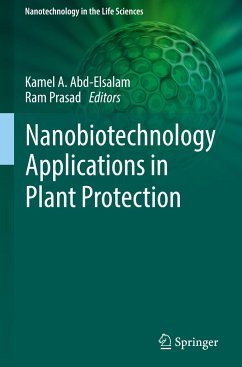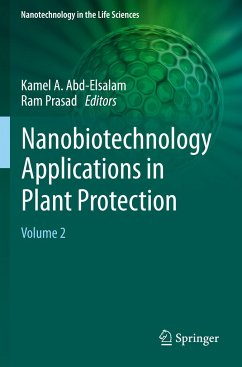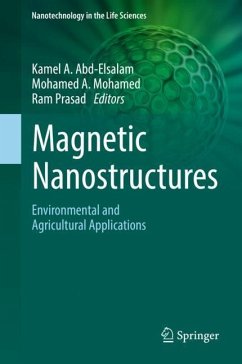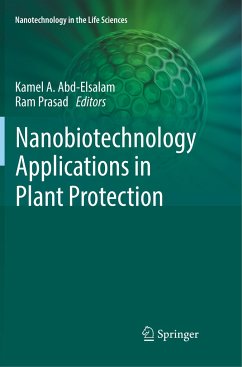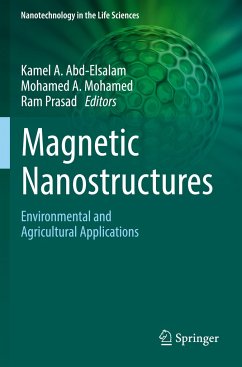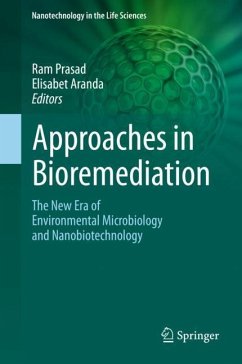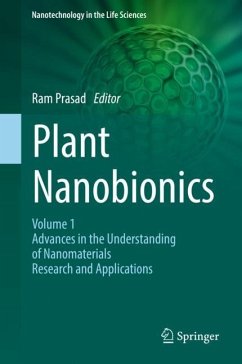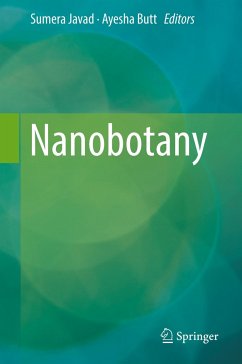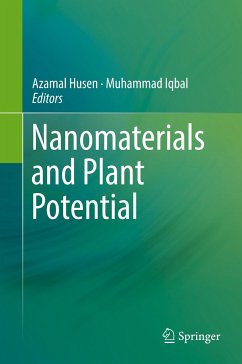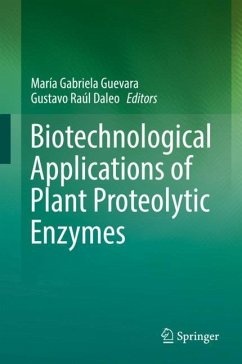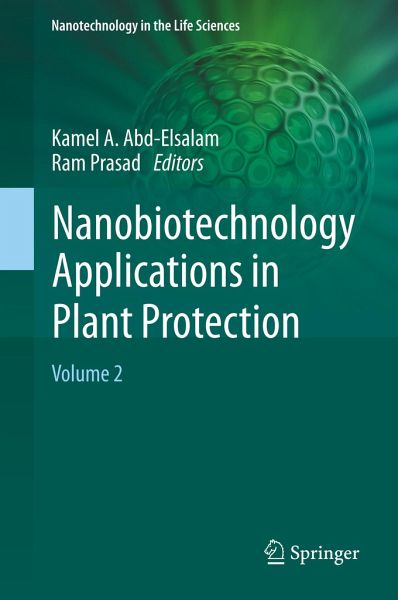
Nanobiotechnology Applications in Plant Protection
Volume 2
Herausgegeben: Abd-Elsalam, Kamel A.; Prasad, Ram

PAYBACK Punkte
57 °P sammeln!
Nanobiotechnology Applications in Plant Protection: Volume 2 continues the important and timely discussion of nanotechnology applications in plant protection and pathology, filling a gap in the literature for nano applications in crop protection. Nanobiopesticides and nanobioformulations are examined in detail and presented as powerful alternatives for eco-friendly management of plant pathogens and nematodes. Leading scholars discuss the applications of nanobiomaterials as antimicrobials, plant growth enhancers and plant nutrition management, as well as nanodiagnostic tools in phytopathology a...
Nanobiotechnology Applications in Plant Protection: Volume 2 continues the important and timely discussion of nanotechnology applications in plant protection and pathology, filling a gap in the literature for nano applications in crop protection. Nanobiopesticides and nanobioformulations are examined in detail and presented as powerful alternatives for eco-friendly management of plant pathogens and nematodes. Leading scholars discuss the applications of nanobiomaterials as antimicrobials, plant growth enhancers and plant nutrition management, as well as nanodiagnostic tools in phytopathology and magnetic and supramagnetic nanostructure applications for plant protection.
This second volume includes exciting new content on the roles of biologically synthesized nanoparticles in seed germination and zinc-based nanostructures in protecting against toxigenic fungi. Also included is new research in phytotoxicity, nano-scale fertilizers and nanomaterial applications in nematology and discussions on Botyris grey mold and nanobiocontrol. This book also explores the potential effects on the environment, ecosystems and consumers and addresses the implications of intellectual property for nanobiopesticides. Further discussed are nanotoxicity effects on the plant ecosystem and nano-applications for the detection, degradation and removal of pesticides.
This second volume includes exciting new content on the roles of biologically synthesized nanoparticles in seed germination and zinc-based nanostructures in protecting against toxigenic fungi. Also included is new research in phytotoxicity, nano-scale fertilizers and nanomaterial applications in nematology and discussions on Botyris grey mold and nanobiocontrol. This book also explores the potential effects on the environment, ecosystems and consumers and addresses the implications of intellectual property for nanobiopesticides. Further discussed are nanotoxicity effects on the plant ecosystem and nano-applications for the detection, degradation and removal of pesticides.





